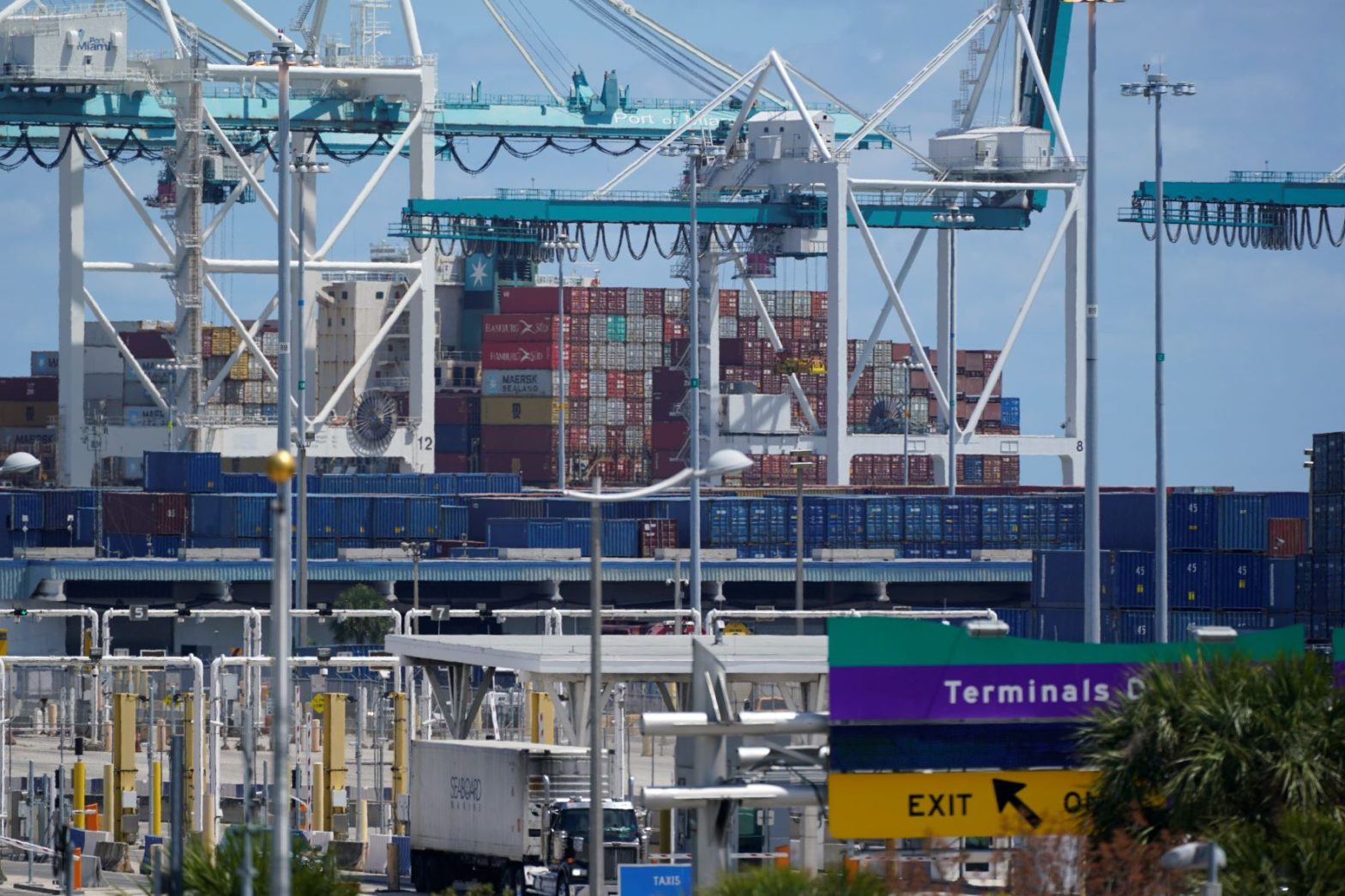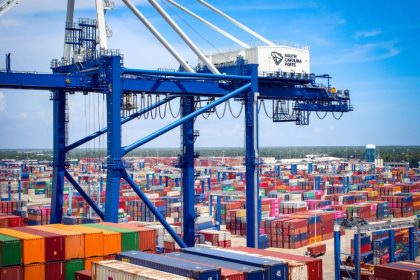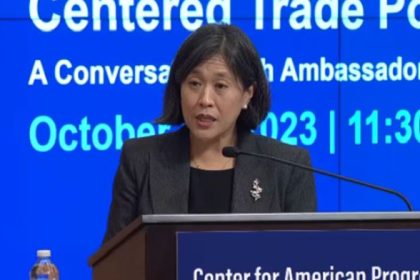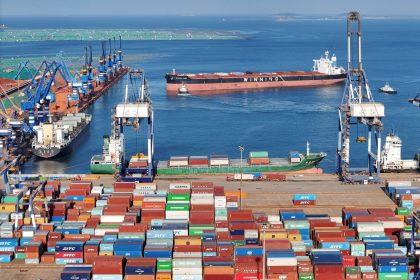House Passes Bipartisan Bill Aimed at Strengthening Shipping Supply Chain

WASHINGTON —The House on Wednesday night overwhelmingly endorsed a bipartisan bill intended to strengthen ocean supply chains that have been racked by bottlenecks since last summer.
The Ocean Shipping Reform Act, introduced by Rep. John Garamendi, D-Calif., in August just as images of ships waiting to get into the Ports of Los Angeles and Long Beach became common nightly news fodder, passed by a 364-60 vote.
After the vote, Garamendi, who co-authored the bill with Rep. Dusty Johnson, R-S.D., said the legislation “is crucial to protecting American jobs, businesses and consumers from a monopolized ocean shipping industry.”
“Access to the American market and its consumers is a privilege, not a right,” he said. “I am pleased that the Ocean Shipping Reform Act has passed the U.S. House of Representatives with overwhelming bipartisan support, bringing us one step closer to protecting American consumers and businesses from price gouging by foreign-flagged ocean carriers.
“I continue working with my Republican colleague, Rep. Dusty Johnson of South Dakota, to enact our bipartisan bill into law,” Garamendi concluded.
For his part Johnson noted “We’ve all been impacted by the backlog in the supply chain and shipping delays.”
“China and the foreign flagged ocean carriers aren’t playing fair, and accountability is long overdue,” he said. “The Ocean Shipping Reform Act puts American consumers, farmers, retailers, truckers, manufacturers and small businesses first. Our bill passed the U.S. House with strong bipartisan support and I look forward to seeing it pass the Senate.”
The bill expands the power of the U.S. Federal Maritime Commission, imposes minimum service standards on carriers and prohibits carriers from imposing unreasonable fees on shipments and their storage.
In addition, it mandates that shipping companies provide “service standards that meet the public interest” and prevents them from unreasonably withholding available cargo space.
Passage of the bill in the House comes just weeks after the chamber passed the Build Back Better Act, which included $5 billion for addressing supply chain issues that have caused consumer prices to rise and raised concerns about product inventories during the holiday shopping season.
More is in the offing as just last week, House Speaker Nancy Pelosi, D-Calif., asked the chairs of committees that deal with supply chain and trade issues to redouble their efforts to draft a bicameral supply chain bill that could be passed by both the House and the Senate, perhaps as early as mid-to-late January.
“This is just one of several bills that we will pass that build on the success of the bipartisan infrastructure law,” Speaker Pelosi said during her weekly press conference on Wednesday. “In there are billions of dollars — $17 billion, in fact — for ports and waterways, for commerce to run more smoothly.”
Also cheered by the passage of the bill was the centrist Blue Dog Coalition of House Democrats who said in a statement emailed to The Well News that the legislation “works to address unfair shipping practices by tackling the worst instances of abuse from bad actors in the shipping industry in an effort to boost our country’s global competitiveness.”
The statement, which was released under the name of Rep. Kurt Schrader, D-Ore., a Blue Dog member, went on to say “ the Senate should pass this critical, broadly-supported legislation without delay to resolve the supply chain struggles impacting Americans.”
Industry groups were also generally heartened by the passage of the bill.
David French, senior vice president of government relations for the National Retail Federation, said in a written statement that the shipping act has remained unchanged for nearly 20 years despite the dramatic changes and growth that have occurred in global trade to meet growing consumer demands.
“This bipartisan legislation provides much-needed updates and reform to an archaic system that retailers and thousands of other businesses depend on each day to transport goods,” French said.
“These improvements could not come at a more critical time, as the amplification from the pandemic has been severe. We thank the House for their swift vote to approve this measure. We encourage the Senate to follow suit,” he added.
But there are those who do not agree, including the World Shipping Council, a trade association representing the international liner shipping industry.
John Butler, president and CEO of the council said in a statement that the House passed the bill “without proper debate or committee process.”
“The bill is a political statement of frustration with supply chain challenges – frustrations that ocean carriers share,” he said. “The problem is that the bill is not designed to fix the end-to-end supply chain congestion that the world is experiencing, and it will not and cannot fix that congestion.”
On Thursday morning Euler Hermes, a major trade credit insurer, released a report to clients that suggests global supply chain disruptions may continue into the second half of next year.
It based its assessment in part on future possible outbreaks of coronavirus variants and annual trade disruptions associated with the Lunar New Year in China.
The contents of the analysis were first reported by CNBC.
But while Euler Hermes analysts appear to be pessimistic about the health of the global supply chain in the near term, they say three factors augur well for an end to the supply chain chaos in the second half of 2022.
These include their belief that consumer demand has likely peaked, manufacturers will be steadily catching up to demand and facing less daunting pressure to restock the supply of goods and that shipping capacity is slowly increasing, making congestion less of an issue in late 2022 than it is today.
Dan can be reached at [email protected] and at https://twitter.com/DanMcCue.
























